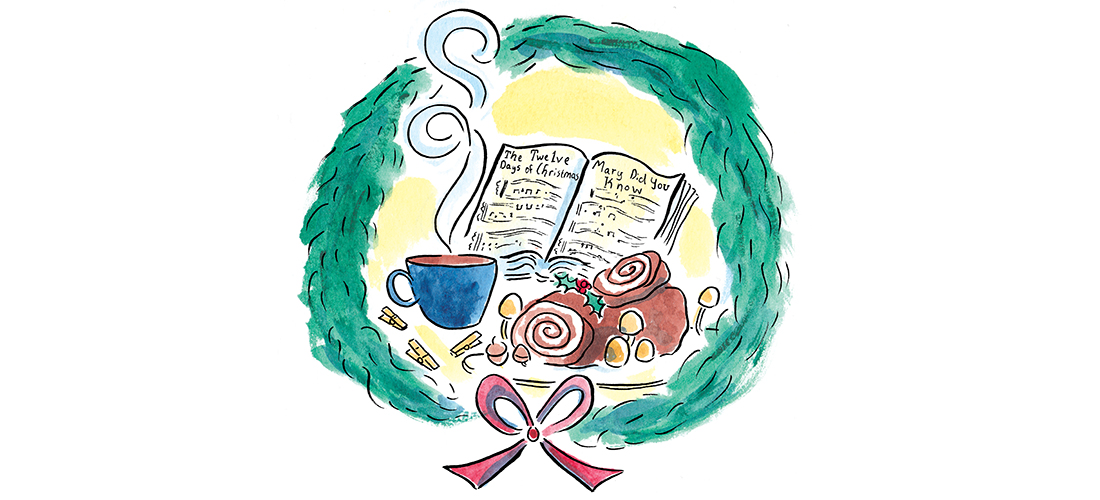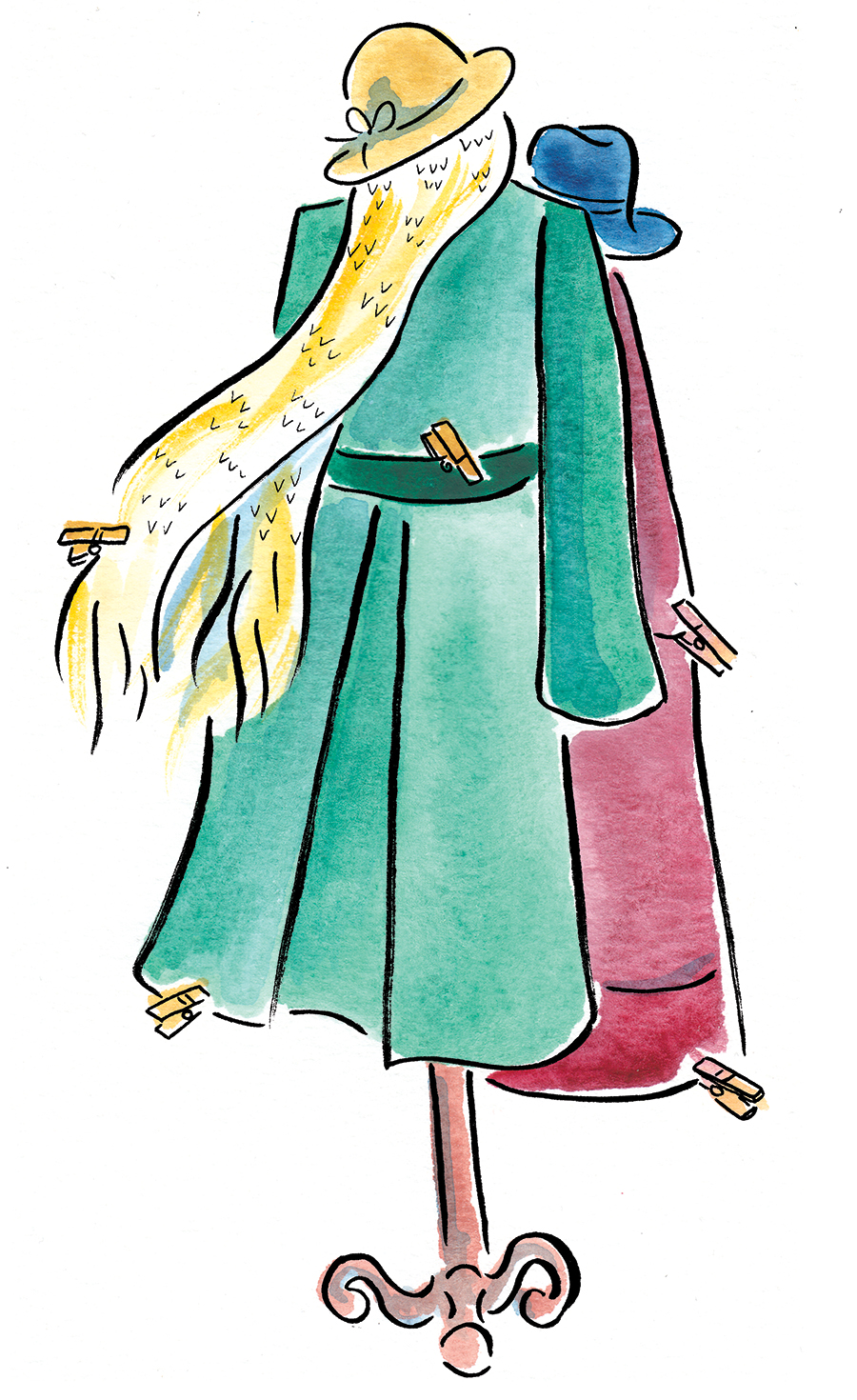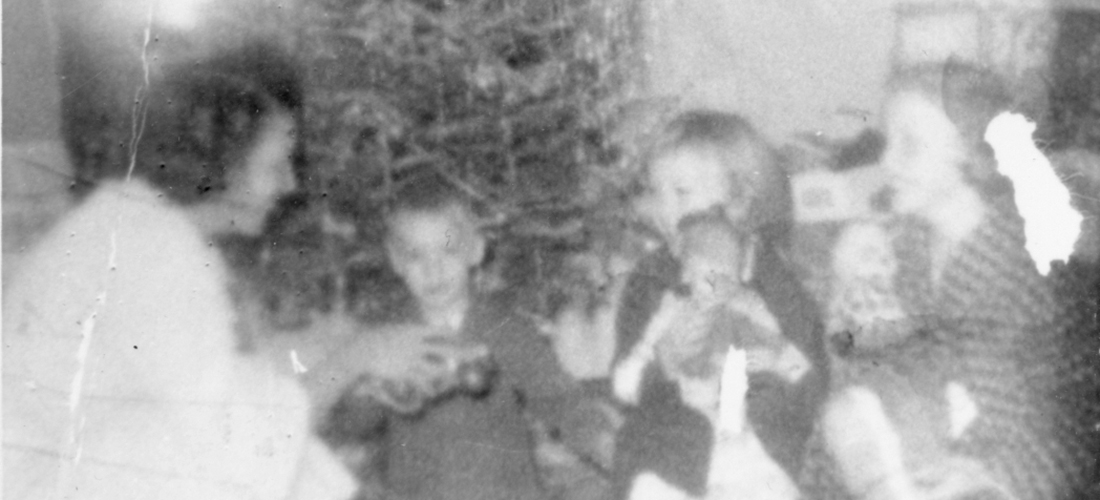Silent Nights
Holding infinity in the palms of our hands
By Jim Dodson
When I was a kid, Christmas Eve couldn’t get here fast enough, the night I eagerly awaited all year. Mine was a visceral excitement fueled in part by the happy torture of unopened gifts beneath a heavily tinseled fir tree, and the crazy notion that if and when I somehow dropped off to sleep, a jolly bearded housebreaker would enter our premises and leave behind fantastic things I’d coveted from the pages of America’s holiest book — the Sears Catalog.
My excitement was also fueled by the other mythic theme of that singular night — the enchantment of a candlelight church service that always ended with congregants passing a small flame hand-to-hand as everyone sang “Silent Night” before filing out into a cold and silent night.
The flickering candles, the mingling scents of burning wax and well-worn hymnals, the ancient readings from Isaiah and St. Luke of a savior babe born in a barnyard stable, the sight of whole families bundled into creaking pews with squirming kids and yawning grandpas, O Magnum Mysterium — somehow it blended together into a delicious stew of magic and wonder that I felt — nay, believed — in my very bones. To this day, it’s the only time I intentionally stay up past midnight, stepping outside with a wee nightcap of bourbon or aged port to savor what may be the truest of silent nights.
Biblical scholars have long debated (and most disputed) the commonly assigned date of the historical Jesus’ birth (neither Luke nor Matthew makes mention of it happening in winter), leaving believers to accept the early Roman Church’s artful grafting of the birth of Jesus Christ onto pagan Rome’s popular feast of Saturnalia, a major holiday that coincided with the winter solstice that was known for its feasting and gift-giving in celebration of the returning of the sun god, Sol Invictus. For what it’s worth, ancient Persians assigned that same day, December 25, to be the birthday of their own returning sun god, Mithra. While in the Hebrew Calendar, the celebration of Hanukkah — the “Festival of Lights” that memorializes the restoration of the Second Temple of Jerusalem following a revolt by the Maccabeans and the miracle of a menorah that burned for eight days — begins on the 25th day of Kislev, which happens to fall anywhere from late November to late December in the Gregorian calendar. Just to make things more interesting, the Eastern Orthodox Christian Church accepts January 7 as the true birth date of Jesus Christ, the proper date of “Old Christmas.” Some leading Biblical scholars even maintain that the birthdate of Christ was in March, the start of spring.
Whatever else might be true, the Christmas-loving kid in me has never required a proof-of-authenticity label or even an official “start” date in order to believe in the transformative magic of the holiday season — whether it’s the lights of Hanukkah or lovely myth of Father Christmas or even lovelier myth of a virgin birth in a barn.
I embrace the true meaning of the word “myth,” by the way, an ancient word that has been stripped of its spiritual power by modern misuse, originally denoting a traditional story meant to convey an important message, often based on historical events, revealing an important belief, practice or phenomenon — all of which perfectly explains why we human seek the light in whatever form on the longest nights of the year.
Here’s my own favorite Christmas story.
During the years we lived on a wooded hill in Maine — deep in a forest of birch and hemlock that almost always had a dusting of snow by Christmas Eve — the Episcopal church we attended put special emphasis on its annual Christmas Eve pageant, an ambitious staging of the Nativity complete with angels, wise men and watchful shepherds guarding their flocks by night.
One year our prodigies, Maggie and Jack, snagged important roles as attending sheep, while my good friend and regular lunch pal, Colonel Robert Day, debuted as the archangel Gabriel. Colonel Bob was an ideal Gabriel, a lovely giant of a gent who’d lost two sons through tragedy and disease but somehow turned his unspeakable grief into counseling families grappling with their own personal tragedies.
In his former life, Bob had been one of the first to lead his unit of army engineers across the Rhine into Nazi Germany during the closing days of the Second World War and was on his way to lead a similar invasion into Japan when the Japanese capitulated. The rest of his military career was spent at the U.S. Military Academy at West Point, where he served as admissions director for many years, laying the foundation for the admission of women to the Academy.
Someone kitted out Colonel Bob with a massive pair of papier mâché wings for the pageant, which he sported with the dignity of Laurence Olivier until one wing detached and conked one of the baby cows on the head, bowling over the poor little creature. For a moment, the glory of Jesus’ birth was upstaged by anxious gasps as the little cow was righted and Bossie’s head removed. Beneath was a laughing kid. The audience broke into spontaneous applause. The kid-cow beamed. “Now that’s a small miracle,” one of the sheep-moms whispered to me with relief. And onward we went to the big finale of gifts from the Magi.
That particular year, the Christmas Eve family service that followed was held at the Settlemeyer family’s barn in the hills west of town. The Settlemeyers had real sheep and cows and a horse or two that were undoubtedly amused by the dozens of shivering families that crowded into their freezing barn to light candles and hear about a savior being born on a Midnight Clear. It was my job, as it happened, to provide the musical accompaniment on my guitar, fingers stiff with cold. Fortunately Colonel Bob showed up with a flask of good Irish whiskey. As a live chorus of sheep bleated, I plucked out a respectable “First Noel” followed by “Hark, the Herald Angels Sing!” and “Silent Night” as candlelight passed from hand to hand, illuminating one face at a time.
Up to that moment, worth noting, it had been a snowless winter in Maine — always an anxious thing for the locals (and yours truly) who counted on decent snows to insulate their foundations and garden beds and provide a pristine landscape for their favorite wintertime activities.
But as we blew out candles and stepped out of the Settlemeyers’ barn, a second small miracle took place — or maybe just good theatrical timing by the universe.
“Look, everybody,” someone cried, “it’s snowing!”
Indeed it was — a curtain of beautiful silent snow falling like an answered prayer over the darkened landscape. During the short drive home, my ever-wise lamb of a daughter wondered if the sudden appearance of snow might really be a miracle.
“Absolutely,” I assured her with the faith of a mustard seed, recalling Albert Einstein’s quote that there are two ways to live your life — as if there’s no such thing as miracles, or that everything is a miracle.
For the record, a third miracle occurred that silent night, one involving her proud papa and brilliant Scottish grandmother, Kate, a professed agnostic who cried once when I took her to Evensong at King’s College in Cambridge. I nicknamed her our “Queen Mum.” Together, we managed to put together a German dollhouse that looked more like a Rhine river castle and came in 4,000 pieces with a dozen pages of instructions in medieval German. In truth, I abandoned the quest around 2 a.m. leaving Mum to her third pot of tea, the rest of the Drambuie and a dying fire. I was certain the task was beyond us both.
In the morning, however, Maggie’s dollhouse looked worthy of a Fifth Avenue toy shop window.
“How’d you do that?” I discreetly quizzed the Queen Mum.
“The power of faith, James,” she came back with a prim smile. “And good Scottish tea.”
Sadly, I think the town fire marshal may have put the kibosh on any more Christmas candlelight services in a livestock barn, that old spoilsport. But I carry the sweetest memories of many such Silent Nights in my heart, that one above the rest.
Like Einstein, you see, I’ve come to believe everything is a small miracle — the oil that lighted lamps for eight days, a prince of peace born in a freezing stable, an angel with a broken wing who mended broken hearts, an agnostic’s tears and people of every race and creed who gather on the darkest night to celebrate the return of the light.
Besides, as Mother Theresa reportedly pointed out, nothing is small to God — only infinite. PS
Contact Editor Jim Dodson at jim@thepilot.com.














